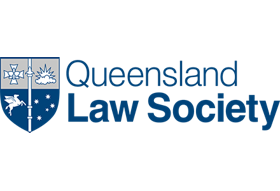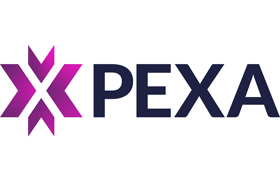Cryptocurrencies and Self-Managed Super Funds
Cryptocurrencies
Bitcoin and cryptocurrencies are a hot topic right now. Traditional banking institutions, like JP Morgan, once wrote off the digital asset as a fad or a scam. Times have changed as JP Morgan are now heavily invested in Bitcoin and the cryptocurrency space and major companies in the USA have started adding Bitcoin to their balance sheets. Michael Saylor, CEO of Microstrategy (NASDAQ: MSTR), is leading the charge with over $1 Billion in Bitcoin now on the Microstrategy balance sheet.
Elon Musk has purchased a similar amount of Bitcoin for Tesla (NASDAQ: TSLA) and fund managers Grayscale, who have over $20 Billion in funds under management, have a Bitcoin Investment Trust as well as other trusts for other cryptocurrencies like Ethereum, Litecoin and Chainlink to name a few.
World renowned macroeconomists, hedge fund managers and traders such as Mike Novogratz, Paul Tudor Jones, Stanley Drukenmiller and Ray Dalio are all invested in Bitcoin. Countries are adopting Bitcoin, with El Salvador passing a law that recognises Bitcoin as a form of legal tender and others, such as Paraguay, considering similar moves.
With the recent 50% price drop in Bitcoin (to $30,000 from it's high of over $60,000 in May 2021) arguments have become much louder as to whether or not cryptocurrencies are a good investment. It's on the news sites, in social conversations or reported in financial reviews. Cryptocurrency is a hot topic!
The steady movement in the price of Bitcoin and the speculative chatter about the nature of cryptocurrencies has resulted in many more people choosing to invest in cryptocurrencies both privately and through a Self-Managed Super Fund.
While many investors used their lockdown time during the Covid-19 pandemic to learn to trade stocks and shares, some discovered bitcoin and cryptocurrency trading and realised they could use their superannuation to buy bitcoin. The practice of using your superannuation to buy bitcoin raises a number of questions, such as how does something as volatile as cryptocurrencies comply with the strict regulation of a SMSF?
To provide you with some insights, we've outlined a few key areas that SMSF trustees and advisers should consider if they're looking to add cryptocurrencies, like Bitcoin, into their portfolios.
Characteristics of Cryptocurrencies
While cryptocurrencies have the same characteristics as traditional money, they don't exist with the same backing as traditional money. Nevertheless, like traditional cash, cryptocurrencies such as Bitcoin can also be used to pay for goods and services. The primary difference is that cryptocurrencies are decentralised digital currencies, which means they have no political or geographical borders. In the absence of a central bank or administrator, cryptocurrency transactions take place directly between users without the need for a third party like a traditional bank.
It is much less convenient to use some cryptocurrencies for day-to-day transactions, however SMSF investors are increasingly adding cryptocurrencies to their portfolios as an investment. What does this mean in terms of compliance and risk?
Trust Deed Investment Strategy and Risk
Investment real estate, stocks and shares all generate income in one form or another but what about cryptocurrencies? They are purely speculative. The assumption is that they will appreciate in value which means that they must be classified as an asset for capital gains. Is this a legitimate form of investment?
There are arguments for and against cryptocurrencies legitimacy as investments. However, consider the Australian Taxation Office (ATO), allows artwork, gold, antiques and collectibles as legitimate investments which all have the same characteristics as cryptocurrencies. The Trust Deed of your SMSF must contain a clause allowing for the SMSF to hold crypto assets just the same as artwork, gold, antiques and collectibles.
Sole Purpose Test
The Superannuation Industry (Supervision) Act 1993 provides for a "sole purpose” of a SMSF fund. That sole purpose is to provide retirement benefits to its members, or to their dependents, should its members die before retirement. Trustees of a SMSF holding cryptocurrency, need to be clear that the investment must be made solely through their SMSF and can't be intertwined with personal assets. Doing so would breach the sole purpose test.
Identification and Ownership
Trading in cryptocurrency, requires a unique identifier. This is done through an encrypted code, known as a "wallet". The wallet acts as the address for transactions. A SMSF needs its own address or wallet, entirely separate to any that you may have in your own name for cryptocurrency investing. Any investments made into cryptocurrencies must be identified as belonging solely to the SMSF, and not mixed in with personal assets.
As wallets exist in cyberspace, they are only identifiable via an IP address. Trustees wanting to invest in cryptocurrencies need to make sure the auditors of the SMSF can identify the following:
Trading history for the wallet at the IP address. This needs to match up precisely with the transactions from the bank account of the fund. To ensure the accounts are easily traceable, it's recommended the SMSF opens a separate bank account for cryptocurrency trading. Auditors will check that the transactions are for the sole benefit of the SMSF, and not an individual.
As the wallet can't demonstrate that the investment is held for the SMSF only, a deed of trust or similar document confirming the fund is the beneficial owner of the cryptocurrency, is required.
Valuation
Any assets held by a super fund must be valued at market value. As a trustee of a SMSF you must be aware that any cryptocurrencies held by an SMSF will be adjusted to reflect the market value as at 30 June of the relevant financial year.
Tax Consequences
As we previously stated the ATO considers, artwork, gold, antiques, collectibles and cryptocurrencies as an asset, selling them at a profit triggers a capital gains tax event which attracts capital gains tax. On the flip side, if the asset is sold at a loss, a capital loss is triggered. Interestingly, the costs involved in trading cryptocurrencies can't be claimed as a tax deduction, instead they form part of the cost base of the crypto asset.
If you HOLD your Bitcoin or cryptocurrencies in a complying SMSF you are "entitled to a capital gains tax (CGT) discount of one-third if the relevant asset had been owned for at least 12 months” according to the ATO website (https://www.ato.gov.au/Super/Self-managed-super-funds/Investing/Tax-on-income/Capital-gains/) when you decide to sell your Bitcoin or cryptocurrencies. No such discounts apply to those who trade and only hold the assets for less than 12 months.
SMSF or No SMSF
This article is not financial advice. The purpose of this article is to inform you of what investments can be made in a SMSF and the legalities surrounding those investments. The decision to establish a SMSF is entirely up to you to make. We strongly advise that you seek financial advice before making any financial decisions.



